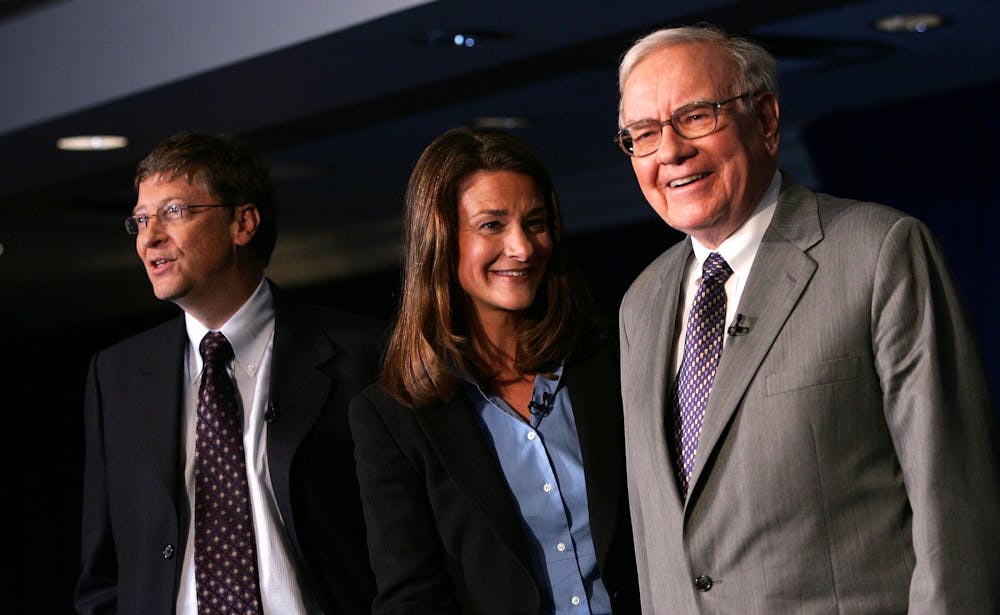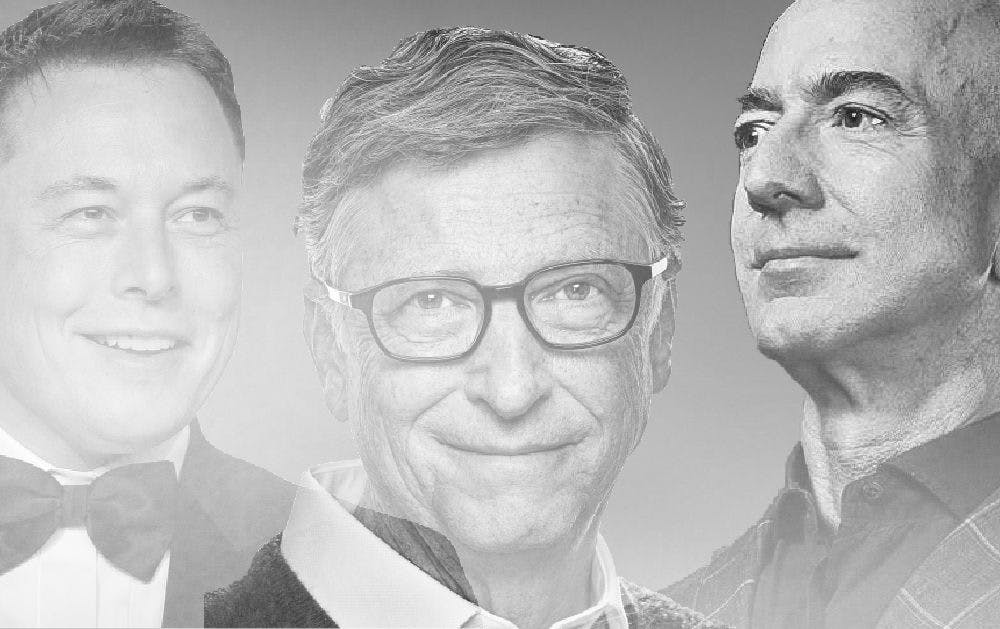What is a “generous billionaire"?
The term itself appears to be an oxymoron—generosity implies an element of self–sacrifice, while the very existence of a billionaire entails ownership of obscene amounts of wealth and the enforcement of stark wealth inequality.
Despite this, the image of billionaires as altruistic and charitable remains strong in the public consciousness. This isn’t surprising, as news outlets often report on the high–level philanthropy of household names. In 2010, Warren Buffet and Bill Gates initiated a campaign known as the Giving Pledge, which encouraged billionaires around the world to give away the majority of their wealth towards the public good. In 2017, Mark Zuckerberg and his wife, Priscilla Chan, founded the Chan Zuckerberg Initiative, which aims to give three billion dollars to aid the housing crisis in Silicon Valley. Just this year, Jeff Bezos’s ex–wife MacKenzie Scott donated billions of dollars to non–profit organizations and even requested that media outlets center the recipients in their news coverage, rather than herself.

These individuals follow a larger trend in what has been called the “golden age of philanthropy,” where in the last three decades, the donations from the ultra–rich have escalated to hundreds of billions of dollars. But the very scholars who coined the phrase, Iain Hay and Samantha Muller, emphasize that this is not a phenomenon of billionaires simply giving away their money to charitable causes, but rather, one that “divert[s] attention and resources away from the failings of contemporary manifestations of capitalism.”
In this growing age of philanthrocapitalism, billionaires are idolized for "fixing" social problems that they helped create in the first place.
For example, Mark Zuckerberg’s monetary attempts to alleviate the Silicon Valley housing crisis do not alter the fact that major tech companies like Apple, Amazon, Facebook, and Google continue to be major contributors to gentrification in their headquarters' surrounding communities. The Bay Area currently has the third largest population of people experiencing homelessness in the United States, and the lack of affordable housing has spilled over to different cities as these tech companies expand.
Billionaire philanthropy has also been criticized for operating as a “moral cover” to detract from exploitative labor conditions and corporate malpractice. This tactic has allowed powerful individuals like Jeff Bezos to announce ten billion dollars in donations to combat climate change, while simultaneously having Amazon expand its business deals with fossil fuel companies, threaten to fire employees who criticize their environmental policies, and stall on their clean energy promises. Bezos’s billions of dollars in “charitable giving” has also not changed the exploitative, grueling, and unsafe labor conditions that resulted in thousands of Amazon workers worldwide going on strike earlier this year.

In many cases, philanthropy is seen as more "economically efficient" than companies having to fundamentally change operational practices. As professor Carl Rhodes and senior lecturer Peter Bloom argue, “Giving to charity is a prime opportunity for CEOs to be seen [doing good] without having to sacrifice their commitment to making profit at any social cost." It permits them to be merely philanthropic, rather than actually "economically progressive or politically democratic."
In fact, billionaires who vowed to donate half of their wealth have actually seen their fortunes skyrocket in the past decade. The 62 people who signed the Giving Pledge in 2010 have collectively seen their wealth increase by 95%, and nine of those billionaires have increased their wealth by 200% or more. Even during the COVID–19 pandemic and economic recession where millions of people lost their jobs, Pledgers had their combined wealth grow by nearly $214 billion—effectively ending the first year of the pandemic much richer than when they started.
Philanthrocapitalism and depoliticized donations aren't solutions to social problems, but rather blunt enforcers of it. It’s time to stop celebrating the rich’s charity work, and instead actively reject the narrative that the "generosity" of billionaires is any type of replacement for social safety nets. It's time to support on–the–ground organizers whose work is rooted in solidarity and meeting the needs of their community—like mutual aid organizations in the Philly area.

